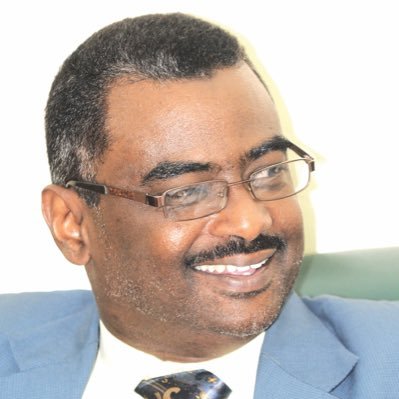Kamil Idris… Is He Drowning in a Drop of Water?!

By Dr. Yasser Mahjoub Al-Hussein
The longer the announcement of Kamil Idris’s government is delayed, the more waves of frustration stir in people’s hearts. The hope that once welcomed the man is beginning to fade, replaced by a scene all too familiar and exhausting: endless consultations and political maneuvering that drag the country back into the same old whirlpool of political “stalling and muddling” that has long characterized Sudanese politics. It appears that the new Prime Minister, who came riding on the aspirations of a people exhausted by war and disappointment, has entered the same old tunnel in which previous governments lost their way.
Hopes had been pinned on a technocratic government that restores professionalism and expertise, cutting off the curse of political quotas. But leaked indications suggest that the man is heading toward forming a government of appeasement and political balancing—satisfying this party, pleasing that faction—even if it comes at the expense of competence and merit. And so, the bleak scene is reproduced: ministries handed out as consolation prizes, not as tools of progress.
More dangerously, even if the government is formed, it will not satisfy the power-hungry forces clamoring for positions. They will continue their usual blackmail, dragging the government into daily battles over its political legitimacy. Worse still, Kamal Idris—if he continues down this murky path—seems poised to sideline active forces that fought on the battlefield and helped defeat the Rapid Support Forces, while lending an ear to marginal voices that hold no real weight in the street and have nothing but a scattered archive of seasonal appearances and random statements.
Kamal Idris was introduced to the public as a fresh face, untainted by political vendettas and conflicts—a man with a respectable international résumé and a hopeful alternative to the exhausting cycle of power-sharing. But his behavior so far suggests either he is shackled in will, or he has chosen to appease everyone in the hope of pleasing them all—a recipe guaranteed to fail. A nation cannot be built on flattery, and one cannot escape a hole by digging another.
The time now wasted in fruitless meetings and consultations is time stolen from the nation, stolen from the blood of the martyrs who watered Sudan’s soil in pursuit of freedom, peace, and justice. It is unwise for the Prime Minister to spend his time listening to every loud voice or chasing after appeasement for anyone who knocks on the door—even if they bring nothing of substance or history.
Thus, the demands of the moment require Kamal Idris to rise above the whirlpool of arguments and free himself from the grip of parties that only unite when dividing spoils, and whose only talent is crying over their share of the cake. He must not drown in pointless dialogues with political figures whose shelf life has expired and whose place now belongs only in the archives of old news.
Despite its flaws, the existing state institutions remain more solid and capable than parties that have lost their compass and scattered their influence across the political alleyways. These institutions carry a reservoir of expertise and operate with the logic of the state—not that of the mobs. Hence, forming a technocratic government from within these institutions is a far more effective approach than diving into the political party bazaar where competence is sold cheap.
What is both astonishing and disheartening is that some media reports have—intentionally or otherwise—slipped into the trap of promoting analyses that amount to nothing more than idle gossip or wishful thinking by parties seeking to sneak into the government through backdoors. These suspicious reports must not be taken seriously—they are a desperate attempt to create a misleading media narrative and impose a fictitious reality before the real one is determined.
Forming the government is not a race of appeals or an open call for opportunists. It is a historical responsibility that requires decisiveness, not hesitation, and clarity, not wavering. If Kamal Idris wants to avoid drowning in a “drop of water,” he must base his decisions on institutional strength—not political flattery.
Kamal Idris’s government will never succeed unless he possesses the courage to make decisions and the boldness to say “No” to those with entrenched privileges. Only through strict transparency, restoring the stature of the Council of Ministers, and regulating the performance of state media, can even a fraction of the lost public trust be restored.
In the end, the people are not waiting for speeches or promises. They want an executive authority that can rescue them from this disorientation and return to them a homeland that is slipping away. Every moment of delay in decision-making chips away at the government’s moral standing and increases the likelihood of its failure.
So beware, Kamil Idris… you may already be starting to drown in that drop of water.



